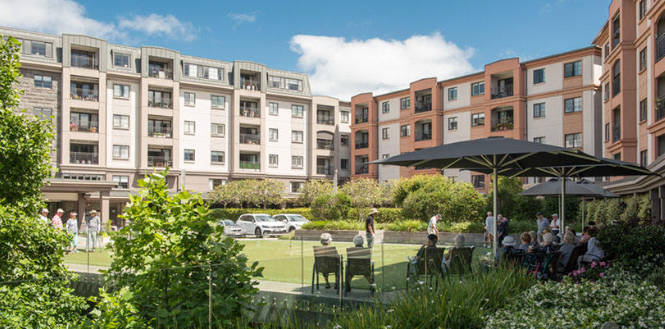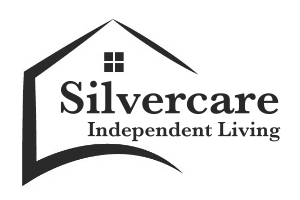Financial Cost of living in Metlifecare Retirement Villages

Metlifecare is one of New Zealand’s premier retirement village providers, offering a blend of lifestyle, community, and care across its 32 North Island locations. Established in 1994, Metlifecare stands out for its comprehensive approach to retirement living, focusing on creating environments where residents feel at home, supported, and engaged in vibrant, active communities.
Choosing to reside in a Metlifecare retirement village means embracing a lifestyle where independence is encouraged, with a range of living options tailored to meet the changing needs of retirees. From independent living arrangements to aged care facilities, Metlifecare prioritises personalisation and quality of life, ensuring each resident receives the care and community engagement they deserve. This article aims to answer your financial questions about Metlifecare retirement village costs, providing insights into what you get and what you have to give up by moving into a Metlifecare retirement village.
The entry costs at Metlifecare Retirement Villages are primarily centered around the purchase price of a licence to occupy. This price varies widely depending on the location of the village, the type of accommodation chosen (e.g., apartment, townhouse, or serviced apartment), and the specific amenities and services provided. The licence to occupy grants the resident the right to live in the property but does not convey ownership of the property itself.
Example Entry Cost: While specific numbers will vary by location and unit type, entry costs into a Metlifecare Retirement Village can range from approximately NZ$350,000 for the lowest cost one-bedroom apartment to over NZ$1,900,000 for premium accommodation options with additional space or enhanced views.
It’s important to note that these figures are indicative and subject to change. Potential residents should consult directly with Metlifecare Retirement Villages for the most current and accurate pricing based on their preferred village and living arrangements.
The Deferred Management Fee (DMF) at Metlifecare Retirement Village is a fee that residents pay when they leave the village, and it’s deducted from the resale price of their unit.
The DMF is calculated as a percentage of the original purchase price or the sale price of the unit, whichever is higher, and is usually capped at a maximum percentage. This percentage normally will accumulate over the first few years until it reaches the cap.
At Metlifecare, the DMF is called a Membership Fee and is capped at 30% of the original Capital Sum of your unit, accruing daily at 10% per year for the first three years of occupancy for independent living. Care suite membership fees are accrued slightly differently, but still capped at 30% of the original Capital Sum.
It’s important to note that the specifics of the DMF, including the percentage rate, the cap, and the accrual period, can vary between different Metlifecare villages or different contracts within the same village. Therefore, prospective residents should consult the specific terms and conditions outlined in their contract with Metlifecare Retirement Village for precise details.
The weekly fee is reviewed once per year and won’t increase more than the percentage change in the Consumer Price Index (CPI), helping to give you certainty over your annual outgoings. Please check your terms and conditions.
Yes
As you enter a village, it’s also good to check what the process is should you wish to leave. At Metlifecare,
for example, you simply need to write to the Village Manager and tell them you wish to give notice to terminate your
ORA. Once you have vacated your unit, then the process of re-licensing your unit will begin.
Check for any hidden costs of re-sale from the village operator. For example, Metlifecare won’t charge you for refurbishing
or the cost of selling your unit. Plus weekly fees and any DMF accurals stop as soon as your ORA is terminated and you have fully vacated your home.
Please verify with your contract.
At Metlifecare, there are no transfer fees if you move from an independent unit
to a serviced apartment. Please verify this and any other fees.
Metlifecare Healthcare mentions that if you want to move out of your unit, you’ll be refunded your capital sum (the amount you paid for your unit), less a deferred membership fee (DMF) and any other costs owing. Your DMF is capped at 30% of the capital sum you paid, accruing over three years. management fee.
Calculating the total cost of living in Metlifecare retirement village
Below is a calculator designed to help potential Metlifecare residents compare the costs of living in a Metlifecare Retirement Village compared to living in your own home. By inputting key financial data such as the entry fee, weekly fees, and the estimated length of stay, users can get a clear picture of the total costs associated with each option. It shows the long term impact of living in a Metlifecare retirement village. This tool is particularly useful for evaluating how different fee structures and DMF policies impact the overall financial commitment to a retirement village. For other tools and more info return to Retirement Village Finance Essentials.
Concluding, Metlifecare is a prominent option among retirement living providers in New Zealand, known for its comprehensive services, including various living options and care levels across its 32 locations in the North Island. It caters to retirees seeking a blend of independence, community engagement, and personalised care.
For those considering broader options, Arvida and Summerset are notable alternatives, each with its own set of offerings and approaches to retirement living. Arvida is recognised for its innovative approach to senior living, prioritising vibrant communities and well-being. Summerset provides a wide range of living options and focuses on creating supportive environments for retirees.
